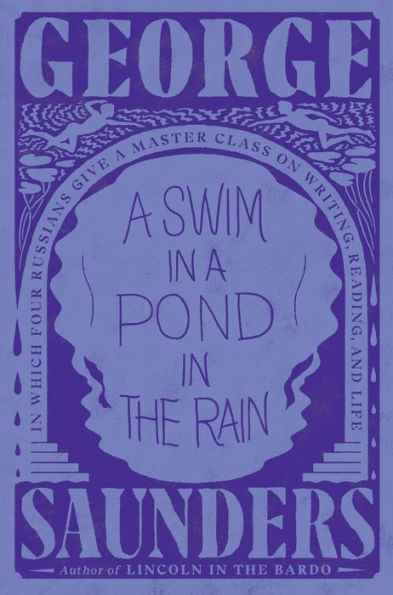Award-winning author George Saunders discusses the publication of “A Swim in a Pond in the Rain.”
BOOK DISCUSSION DETAILS
[In Conversation with Cheryl Strayed]
Thursday January 14, 2021 7:00 PM
Barnes & Noble
Event Details: https://bngeorgesaunders.eventbrite.com
About the Author:
George Saunders is the #1 New York Times bestselling author of ten books, including Lincoln in the Bardo, which won the Man Booker Prize; Congratulations, by the way; Tenth of December, a finalist for the National Book Award; The Braindead Megaphone; and the critically acclaimed short story collections CivilWarLand in Bad Decline, Pastoralia, and In Persuasion Nation. He teaches in the creative writing program at Syracuse University.

About the Book:
Saunders is the master class instructor of our dreams. He is witty, charming and informative, willing to pepper in just the right amount of personal asides to make us feel like we are in direct conversation with him. He walks us through Russian short stories to help us, ultimately, become better readers and writers. There are only seven stories in this collection and, with Saunders as our faithful guide, we suspect we will all be reading even more. This will inspire the writer within all of us.
For the last twenty years, George Saunders has been teaching a class on the Russian short story to his MFA students at Syracuse University. In A Swim in a Pond in the Rain, he shares a version of that class with us, offering some of what he and his students have discovered together over the years. Paired with iconic short stories by Chekhov, Turgenev, Tolstoy, and Gogol, the seven essays in this book are intended for anyone interested in how fiction works and why it’s more relevant than ever in these turbulent times.
In his introduction, Saunders writes, “We’re going to enter seven fastidiously constructed scale models of the world, made for a specific purpose that our time maybe doesn’t fully endorse but that these writers accepted implicitly as the aim of art—namely, to ask the big questions, questions like, How are we supposed to be living down here? What were we put here to accomplish? What should we value? What is truth, anyway, and how might we recognize it?” He approaches the stories technically yet accessibly, and through them explains how narrative functions; why we stay immersed in a story and why we resist it; and the bedrock virtues a writer must foster. The process of writing, Saunders reminds us, is a technical craft, but also a way of training oneself to see the world with new openness and curiosity.
A Swim in a Pond in the Rain is a deep exploration not just of how great writing works but of how the mind itself works while reading, and of how the reading and writing of stories make genuine connection possible.














